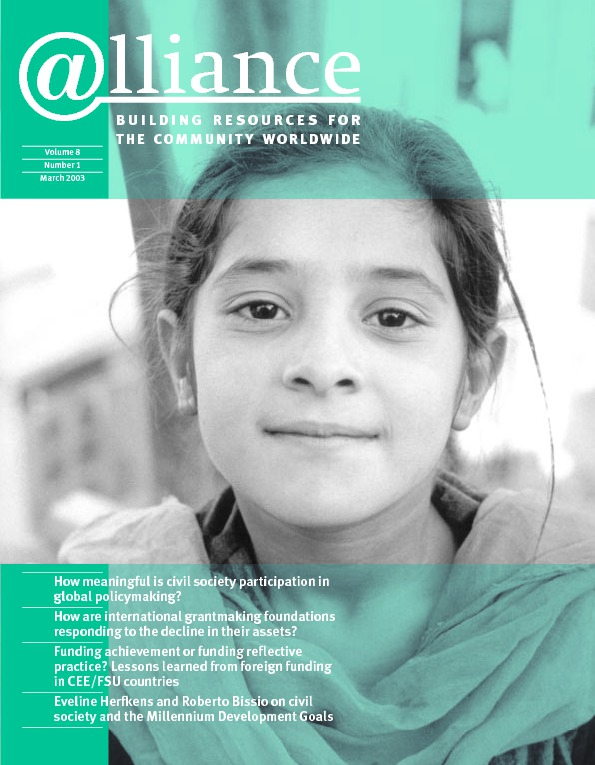‘Do you think it’s important that Europe should have a stronger voice in the world?’ This was one of the questions 60 European foundations were asked last summer. The survey was the first phase of the one-year ‘Europe in the World’ feasibility study.[1] The fact that most respondents answered ‘yes’ suggests that there could be a role for a new network of European foundations that make grants outside Europe.
So what do European foundations do outside Europe now? Over half of the 60 selected foundations replied, and over half of these do make some international grants. But the amounts involved are mostly small and cooperation outside Europe is almost non-existent, even among those few giving away large amounts. Very few foundations work with the European Commission or their own government development aid agencies.
More positively – and this surely provides a starting point for Europe in the World – most respondents felt the situation should change, and that inevitably foundations will increase their spending outside Europe. A substantial group said they were actually considering doing so. Most said they were willing to collaborate with others if suitable partners presented themselves, but they weren’t actively looking for partners.
The main barrier to increased giving outside Europe is not that foundation statutes don’t allow it but that foundations lack confidence about selecting suitable grantees and monitoring grants. Charities Aid Foundation is the only European trust that has employees in a developing country. Some have relationships with a university or research institute; some make grants to operating agencies such as Oxfam and CARE International. As regards working with national governments, most foundations simply hadn’t thought of it. Some have tried collaborating with the EC but they gave up, defeated by the red tape.
The conclusion seems to be that there are good reasons to proceed with the Europe in the World project. Three approaches are being considered:
- Advocacy – promoting the idea of foundations spending more overseas and working together.
- Resources – trying to persuade foundations to give 10 per cent of their distribution outside Europe. This seems possible in some cases but will take a lot of effort.
- Content – looking at what foundations are currently funding, largely education and training, children’s projects, HIV/AIDS and cultural exchanges, and at why the range is so limited. There is almost no funding for civil society building, for example.
The idea is that all this will be discussed at a meeting of European CEOs to be held in Brussels on 1 April. The big question then will be whether the time is right to launch a new network at the EFC conference in Lisbon in June.
1 Implemented through NEF (Network of European Foundations for Innovative Cooperation).
Michael Brophy is project manager for Europe in the World. He can be contacted at mbrophy@helpforalltrust.org







Comments (0)